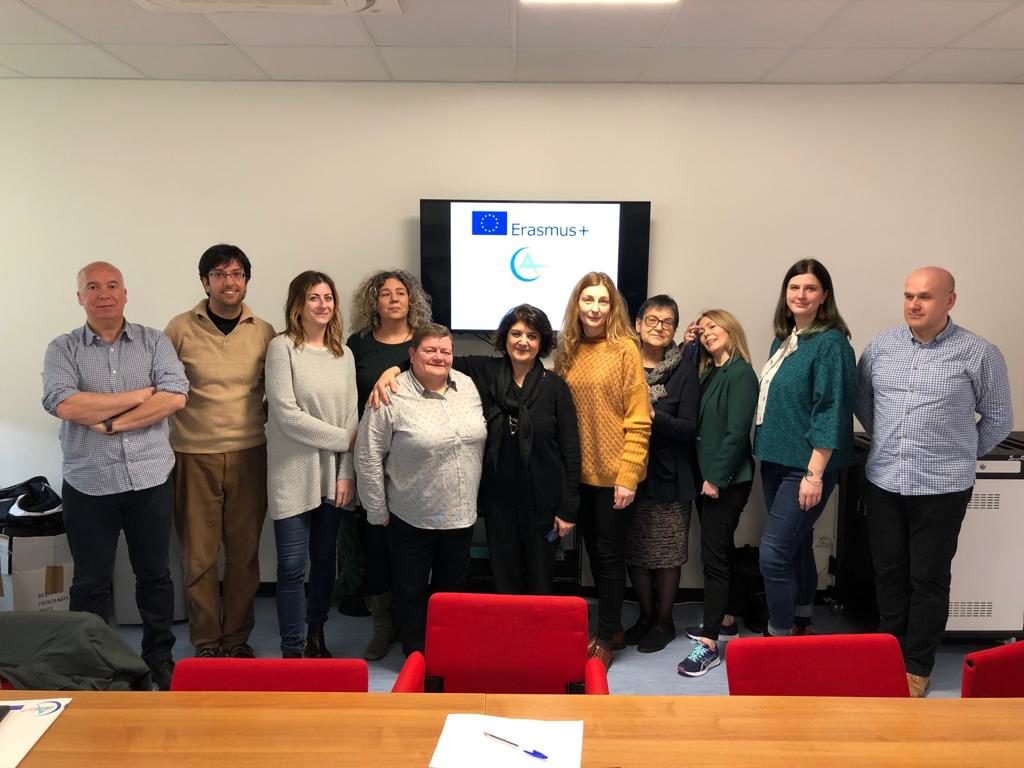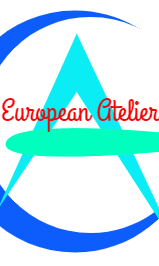
The Latvian representatives (Art Institute of Riga), Spaniards (Professional Institute of Yecla) and Poles (TEB Training Agency of Poznan) returned during the weekend.
The final meeting of the Erasmus + “Atelier of Crafts” project hosted by the Scuola dei Mestieri of Ecipa Umbria was concluded on Friday. The last comparison on the training model for a successful professional school. A mix of training laboratory and internship in a company that focuses on the learner, who identifies in the 3 acca (head, hands, heart), ie head, hands and heart, the criteria for transferring and evaluating the training process in its entirety. A model that identifies in all the training actors (primarily the learner, the trainers and the company) the evaluators of the whole process and the outcomes in terms of skills.
Last November, the model was also tested in Perugia: students from all the partner schools took part in the workshop activities in Ecipa and realized a work experience at the Perugian companies in the wellness and beauty sectors, design and art craft, graphic and web design.
The experimentation of the model and the results of the evaluation gave reason to the Ecipa trainers and the partner countries who had foreseen the positive outcome of the training process.
Off the shelves and away from professorial lessons, vocational training entrusts to “learning by doing” and to cooperative learning the task of transferring skills, which are not limited to technical-professional ones, but identify the soft skills that are needed by now. priorities also in the world of work.
Students, teachers and companies have expressed positive evaluations regarding the experimentation last November. The data, re-elaborated by Dr. Cristina Gasparri, teacher of the Scuola dei Mestieri, speak clearly, the model worked well and each of the actors involved (learners, trainers and companies) expressed a very high evaluation in this regard.
The success of the model concerns above all the companies that have hosted the boys who have come into play, collaborating in the experiment. Modern and flexible businesses that have now abandoned the old stereotype that sees the School separate from the world of work. Today the company feels involved in the training process and is well aware of what it takes to transfer expendable skills and to motivate the young person in training. Thanks and praise to all the Perugian companies that have collaborated on the European Project welcoming young people of different nationalities. We mention some of the companies that participated in the project: Hairdressers I Donati, Creative Academy, Primosole, I Me Aesthetic Center, MAC, Jean Louis David, System Museum, Penumbria Studio, Promovideo, Galaxy, System Museum, Eventuno, Blackout Entertainment, Adriano Scognamillo – Puck, Eagle Projects, Studio Vignaroli, Grafox, Pucci Office, Levita, Pasquini Adriano Dental Office, Castrona ‘Dental Office, Energy Gym, Corpus Gym, Corso Como Arredamenti.
The project is funded under the Erasmus + Program. For information, please contact Ecipa Umbria www.ecipaumbria.it, www.atelierofcrafts.com
Sono rientrati nel fine settimana i rappresentanti lettoni (Istituto d’arte di Riga), spagnoli (Istituto Professionale di Yecla) e polacchi (Agenzia Formativa TEB di Poznan).
Si è concluso venerdì il meeting finale del progetto Erasmus + “Atelier of crafts” ospitato dalla Scuola dei Mestieri di Ecipa Umbria. L’ultimo confronto sul modello formativo per una scuola professionale di successo. Un mix di laboratorio formativo e tirocinio in impresa che mette al centro il discente, che individua nelle 3 acca (head, hands, heart), ovvero testa, mani e cuore, i criteri per trasferire e valutare il processo formativo nella sua completezza. Un modello che individua in tutti gli attori della formazione (in primis lo stesso discente, i formatori e l’impresa) i valutatori di tutto il processo e degli esiti in termini di competenze.
Lo scorso novembre, sempre a Perugia è stato testato il modello: gli allievi di tutte le scuole partner hanno partecipato alle attività laboratoriali in Ecipa e hanno realizzato una work experience presso le imprese perugine nei settori wellness and beauty, design and art craft, graphic and web design.
La sperimentazione del modello e i risultati della valutazione hanno dato ragione ai formatori di Ecipa e dei paesi partner che avevano previsto l’esito positivo del processo formativo.
Fuori dai banchi e lontano da lezioni cattedratiche la formazione professionale affida al “learning by doing” e all’apprendimento cooperativo il compito di trasferire le competenze, che non si limitano solo a quelle tecnico-professionali ma individuano tra quelle necessarie le soft skills, ormai prioritarie anche nel mondo del lavoro.
Allievi, docenti e imprese hanno espresso valutazioni positive riguardo alla sperimentazione dello scorso novembre. I dati, rielaborati dalla Dott.ssa Cristina Gasparri, docente della Scuola dei Mestieri, parlano chiaro, il modello ha funzionato bene e ciascuno degli attori coinvolti (discenti, formatori e imprese) ha espresso una valutazione molto alta al riguardo.
Il successo del modello riguarda soprattutto le imprese che hanno ospitato i ragazzi che si sono messe in gioco, collaborando all’esperimento. Imprese moderne e flessibili che hanno ormai abbandonato il vecchio stereotipo che vede la Scuola separata dal mondo del lavoro. L’impresa oggi si sente coinvolta nel processo formativo ed è ben consapevole di ciò che serve a trasferire competenze spendibili e a motivare il giovane in formazione. Un grazie e un plauso a tutte le imprese perugine che hanno collaborato al Progetto europeo accogliendo giovani di diverse nazionalità. Citiamo alcune delle imprese che hanno partecipato al progetto: Parrucchieri I Donati, Accademia Creativa, Il primosole, I Me Centro Estetico, M.A.C., Jean Louis David, Sistema Museo, Penumbria Studio, Promovideo, Galassia, Sistema Museo, Eventuno, Blackout Entertainment, Adriano Scognamillo – Puck, Eagle Projects, Vignaroli Studio, Grafox, Pucci Ufficio, Levita, Studio Dentistico Pasquini Adriano, Studio Dentistico Castrona’, Palestra Energia, Palestra Corpus, Corso Como Arredamenti.
Il progetto è finanziato nell’ambito del Programma Erasmus+, per informazioni potete rivolgervi ad Ecipa Umbria www.ecipaumbria.it, www.atelierofcrafts.com


